Sign on the Window isn't the Bob Dylan podcast you need, but it's definitely the one that you want! Each week we select a Dylan song at random, live with the song for a week (or two) and then get together to discuss. This week we go meta with 2020 by listening to Dylan's "Eternal Circle."
In this episode...
Context (3:00)
1991 SongTalk interview (9:00)
Versions (12:00)
Song Itself (17:00)
Does it work in 2020 (38:30)
Real Podcast and Playlist (42:00)
Recommendations (55:00)
Endings (1:10:00)
And if you're loving us, consider our Patreon. For as little as one dollar you get early access to every episode we do as soon as they're edited (and a dedicated feed just for you) and exclusive content that'll only ever be on Patreon. Thanks!
Next episode: "The wildest cat from Montana passes by in a flash"
Context (3:00)
Dylan played this song between May and June 1963 at Tony Glover's home and at Dave Whitakers on July 17, 1963 before recording the song multiple times.
First on August 7, 1963 (in 4 takes) between album versions of "Ballad of Hollis Brown" (Episode 40), "With God On Our Side" (Episode 52), "Only A Pawn In Their Game," and "Boots of Spanish Leather" (Episode 67).
Next on August 12, 1963 (also in 4 takes) after Episode 36's "Paths of Victory."
Finally on October 24, 1963 (again 4 takes) to open the day. This recording is on The Bootleg Series, Vol. 1-3 and was followed that day by the album recordings of "Times They Are A-Changin'" and "One Too Many Mornings."
Dylan performed this song only 3 times: at Glover's home, Whitaker's home, and Royal Festival Hall in May 1964. (He may have played at Lisner Auditorium at George Washington University in Dec. 1963 and Berkley Community Theater on February 22, 1964, but setlists are not confirmed.)
Versions (12:00)
Daniel relates Dylan's interview with Paul Zollo in 1991 to talk about his views on songwriting and performing. Dylan says Hank Williams is the best songwriter, which throws Zollo for a loop as he thought he'd say it was Woody Guthrie. Dylan begs Zollo to see both as not just writers but as performers:
... And that's another thing which separates a person who just writes a song... People who don't perform but who are so locked into other people who do that, they can sort of feel what that other person would like to say, in a song and be able to write those lyrics. Which is a different thing from a performer who needs a song to play on stage year after year.
Zollo: And you always wrote your songs for yourself to sing — My songs were written with me in mind. In those situations, several people might say, 'Do you have a song laying around?' The best songs to me -- my best songs -- are songs which were written very quickly. Yeah, very, very quickly. Just about as much time as it takes to write it down is about as long as it takes to write it. Other than that, there have been a lot of ones that haven't made it. They haven't survived. They could . They need to be dragged out, you know, and looked at again, maybe.
With this in mind (as it relates to the idea of the eternal circle), we listened to the recorded versions and him at Royal Festival Hall in 1964.
Song Itself (17:00)
Kelly and Daniel start their conversations on circles. "Eternal Circle" operates like this and Daniel shows this was on Dylan's mind, references Dylan's "For Dave Glover," last discussed in Episode 12 on "Talkin' John Birch Paranoid Blues:"
Two sides
I don know what happened cause I wasn't aroun but somewhere along
the line that used to be day things got messed up
More kinds a sides come int' the story
Folks I guess started switchin sides an makin up their own sides
There got to be so many sides that no eyes could could see the eyes facin em
There got to be so many sides that all of em started lookin' like each other
I don pretend to know what happened man, but somehow all sides lost their purpose an folks forgot about other folks
I mean they must of all started goin against each other not for the good
of their side but for the good a just their own selves
An them two simple sides that was so easy to tell apart bashed an
boomed an exploded so hard an heavy that t'day all'ts left and
made for us is the one big rockin rollin
COMPLICATED CIRCLE
Speaking of eyes, we get vivid descriptions of the woman in the crowd. They talk about regret as Kelly noodles her way through the song.
They also discuss the links in the chain, quoting Dylan in Zollo once again, as he asks specifically about this concept:
Zollo: He [Pete Seeger] said, 'All songwriters are links in a chain.' Without your link in that chain, all of songwriting would have evolved much differently. You said how you brought folk music to rock music. Do you think that would have happened without you? Somebody else would have done it in some other kind of way. But, hey, so what? So what? You can lead people astray awfully easily. Would people have been better off? Sure. They would have found somebody else. Maybe different people would have found different people, and would have been influenced by different people.
Mainly, the song is about the love of performing and relates to Dylan's Never Ending Tour (and the road, in general). In an interview with Denise Worrell in November 1985, Dylan says:
In life, well, I mean, I feel like I fall short in just about everything. In music I can do just about what I need to do. I feel pretty calm most of the time, but then if I review my situation at all, it always seems like I’m up there walking the plank. I’m probably a driven person. I always feel like somebody’s cracking the whip. Somebody or something. It’s just mostly because so many things happen in my life and they’re all going at the same time, but I don’t know how else to live my life. I never felt like I was searching for anything. I always felt that I’ve stumbled into things or drifted into them. But I’ve never felt like I was out on some kind of prospector hunt looking for the answers or the truth.
Does it work in 2020 (38:30)
It's meditative, complex and beautiful. It smuggles a ton of emotions onto the stage and puts us into the eyes of the singer or the person in the crowd watching.
It's influence on other Dylan songs is noteworthy: another outtake "Lay Down Your Weary Tune" as well as a little song you may have heard of, "Mr. Tambourine Man."
Daniel let's Zollo and Dylan close this episode out:
Zollo: Your songs, like Woody's, always have defied being pop entertainment. In your songs, like his, we know a real person is talking, with lines like "You've got a lot of nerve to say you are my friend." That's another way of writing a song, of course. Just talking to somebody that ain't there. That's the best way. That's the truest way. Then it just becomes a question of how heroic your speech is. To me, it's something to strive after.
Zollo: Until you record a song, no matter how heroic it is, it doesn't really exist. Do you ever feel that? No. If it's there, it exists.
Zollo: You once said that you only write about what's true, what's been proven to you, that you write about dreams but not fantasies. My songs really aren't dreams. They're more of a responsive nature. Waking up from a dream is... when you write a dream, it's something you try to recollect and you're never quite sure if you're getting it right or not.
Zollo: You said your songs are responsive. Does life have to be in turmoil for songs to come? Well, to me, when you need them, they appear. Your life doesn't have to be in turmoil to write a song like that but you need to be outside of it. That's why a lot of people, me myself included, write songs when one form or another of society has rejected you. So that you can truly write about it from the outside. Someone who's never been out there can only imagine it as anything, really.
THE EPISODE’S BOOKLET & PLAYLIST (42:00)
RECOMMENDATIONS (55:00)
Kelly continues the comfort podcasts by diving deep through Johnny McGovern old podcasts. For music, she listened to Portland's own A Collective Subconscious.
Daniel recommends a new playlist "Pet Hospital," made for a day sitting by the pool and grilling up Impossible Burgers. He also listened to Nicole Atkins Italian Ice and talks about the death of Justin Townes Earle.
ENDINGS (1:10:00)
There's 376 songs left. Kelly guesses #301. "Tin Angel" from Tempest. Turns out to be #248, "Three Angels," from New Morning.
Follow us wherever you listen to podcasts. See our real-time playlist See That My Playlist is Kept Clean on Spotify. Follow us intermittently on Twitter and Instagram.
Tell your friends about the show, rate and review wherever they let you, and consider supporting us by subscribing or at Patreon.








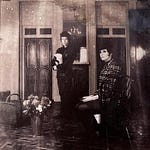
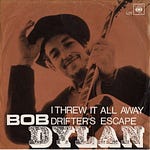
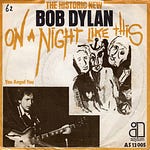

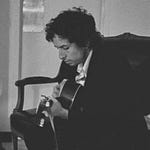
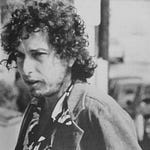
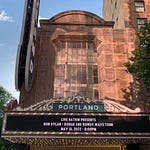
Share this post